Women in all states won the universal right to vote one hundred years ago through the ratification of the United States Constitution’s 19th Amendment in 1920. Though women in Seneca Falls, New York, launched the women’s rights movement in 1848 when they claimed that the Declaration of Independence applied to women in the Declaration of Sentiments, the first mention of women’s rights took place during the American Revolution.
Abigail Adams’s call to “remember the ladies” is well known. Less familiar is how her husband, John Adams, responded. The debate he held on voting rights reveals a desire for independence to mean unbiased, and the role that class played in society during the nation’s founding. Adams’s remedy also expressed a form of self-sufficiency still embraced today.
Often taking initiative, Abigail wrote to a London bookseller at her husband’s request to build support in England for America’s cause. “I need not tell you, Sir, that the distressed state of this province calls for every excursion of every member of society,” Abigail had written to Edward Dilly shortly after the battles of Lexington and Concord in April 1775. Her choice of words showed her egalitarianism. “The spirit that prevails among men of all degrees, all ages and sexes is the spirit of liberty. For this they are determined to risk all their property and their lives nor shrink unnerved before a tyrant’s face.”[1]
At this time, John and Abigail Adams were physically but not emotionally separated. She was living like a single parent, with the full care of their four children in war-torn Massachusetts. Hundreds of miles away in Philadelphia, John was consumed with his new passions—patriotism, public policy, and politics.
John saw Abigail as his intellectual equal. Though women did not attend school in this era, Abigail had learned to read and write at home as a child growing up in Weymouth, Massachusetts, about twelve miles from Boston. A minister of a church, her father had a large library, which he encouraged Abigail to use. She indulged in books.
Adams viewed his wife with great respect and admiration. “I think you shine as a stateswoman, of late as well as a farmeress. Pray where do you get your maxims of state, they are very apropos.”[2]
Their relationship and chemistry were built on their mutual intellect. “This has been the cheering consolation of my heart, in my most solitary, gloomy and disconsolate hours. In this remote situation, I am deprived in a great measure of this comfort. Yet I read, and read again your charming letters, and they serve me, in some faint degree as a substitute for the company and conversation of the writer.”[3]
His longing for her during their war-enforced separation led him to write that he wanted to see her think. Yes, watch her think. “Is there no way for two friendly souls, to converse together, although the bodies are 400 miles off?—Yes by letter.—But I want a better communication. I want to hear you think, or to see your thoughts.”[4]
Think she did. Abigail gave him her frank thoughts on a variety of issues, from the lack of silver to the unfairness of a liquor tax. Knowing that he was contemplating the great issue of declaring independence from England, she weighed in on a matter that meant a great deal to her. “And by the way in the new code of laws which I suppose it will be necessary for you to make, I desire you would remember the ladies, and be more generous and favorable to them than your ancestors,”[5] she wrote John on March 31, 1776. If the war was affecting every member of society, and each was fighting for liberty, then shouldn’t all adults have a say in who represented them? That was her natural conclusion.
Abigail didn’t hold back. “Do not put such unlimited power into the hands of the husbands. Remember all men would be tyrants if they could,” she continued, underscoring her point with teasing and hyperbole. “If particular care and attention is not paid to the ladies, we are determined to foment a rebellion, and will not hold ourselves bound by any laws in which we have no voice, or representation.”[6]
She wanted her husband to protect women from those who didn’t respect women the way that he did. “Why then, not put it out of the power of the vicious and the lawless to use us with cruelty and indignity with impunity. Men of sense in all ages abhor those customs which treat us only as the vassals of your sex,” she continued, using the feudal term vassal to underscore her point that all men were not uniformly lords over all women. “Regard us then as beings placed by Providence under your protection and in imitation of the Supreme Being make use of that power only for our happiness,” she concluded.[7]
Abigail could trace her interpretation to scripture and John Locke, who had pointed out in his famous 1690 work, Two Treatises of Government, that “whatever God gave by the words of this grant, Genesis 1:28, it was not to Adam in particular, exclusive of all other men: whatever dominion he had thereby, it was not a private dominion, but a dominion in common with the rest of mankind.”[8]
Locke saw mankind as humanity, both male and female. God didn’t give dominion to Adam alone: “For it was spoken in the plural number, God blessed them, and said unto them, have dominion. God says unto Adam and Eve, have dominion.” He asked this question about Eve: “Must not she thereby be lady, as well as he lord of the world? . . . for shall we say that God ever made a joint grant to two, and one only was to have the benefit of it?”[9]
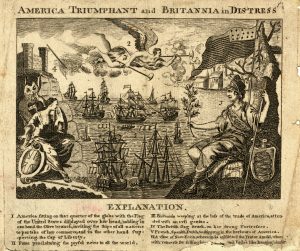
Abigail obviously agreed. But did her Adam concur? On the surface, John responded to Abigail’s remember the ladies with playful banter. “As to your extraordinary code of laws, I cannot but laugh. We have been told that our struggle has loosened the bands of government everywhere,” he wrote to her on April 14, 1776. “But your letter was the first intimation that another tribe more numerous and powerful than all the rest were grown discontented.—This is rather too coarse a compliment but you are so saucy, I won’t blot it out.” He tried to soften the blow. “Depend upon it, we know better than to repeal our masculine systems. Although they are in full force, you know they are little more than theory.”[10]
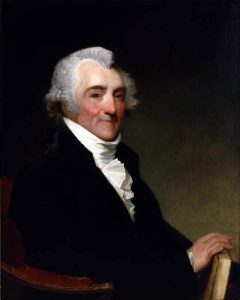
Though Adams didn’t appear to take his wife seriously, he in fact did think about it. In May 1776 he engaged in a debate over the question of who had the right to vote with James Sullivan, a Massachusetts lawyer. Sullivan was excited because leaders in Massachusetts were creating a new legislature, which the king had previously abolished. “A new assembly is at hand in which there will be the most full and equal representation that this colony ever saw. This assembly will undoubtedly suppose it to be their duty to provide for a future less unwieldly and more equal representation than themselves,” Sullivan stated.[11] “Every member of society has a right to give his consent to the laws of the community or he owes no obedience to them,” he wrote, noting that this was a true republican principle. But Sullivan saw a huge flaw in the old system. “And yet a very great number of the people of this colony have at all times been bound by laws to which they never were in a capacity to consent not having estate worth 40/ per annum &c.”[12]
What was he talking about? In order to vote in Massachusetts, one had to own land worth forty shillings a year. The result was that only sixteen percent of the population was eligible to vote. Of those eligible, only three and a half percent of the population had voted in the decade before 1774, when the king implemented martial law under a British general.[13] Sullivan saw the contradiction. If only landowners could vote, then more than eighty percent of the people had no voice in choosing their representatives. The resulting system exclusively favored the upper class and left out thousands of European males as well as women, free blacks, and slaves.
“But yet by fiction of law every man is supposed to consent. Why a man is supposed to consent to the acts of a society of which in this respect he is absolutely an excommunicate, none but a lawyer well dabbled in the feudal system can tell,”[14] Sullivan criticized. The current system was blind to this injustice.
Where did this voting structure come from? Originating in the medieval era of knights and lords, this voting practice was based on the feudal system. A landlord owned property. His wife, children, servants, and renters, called vassals, all depended on the landlord. The relationship between landlord and vassals was more than just a financial obligation to pay rent once a month. The renter also owed his landlord his military service and political allegiance.
If you rent a house or an apartment in our modern culture, you pay your property owner a monthly amount in rent. That’s it. You wouldn’t depend on your property owner for food or a job. If the feudal system were in place, your landlord would also be your boss, giving you instructions on farming and overseeing your work and food supply. Your landlord would be your captain in the military, who could order you to the battlefield. Your landlord could tell you how to vote. Imagine being required to vote the same way your apartment owner voted today.
Though the medieval era had died out in the 1400s, it still influenced the 1700s. Men and women who did not own land depended on someone who did. Children depended on women. Women depended on husbands, fathers and brothers. Artisans, such as silver smiths, depended on patrons, who were landowners. Renters depended on landowners for their food and homes. Working-class men often rented land. All depended on the landlord. They could not theoretically vote of their own free will because they had a bias, a debt to a landowner. The result was that only people who were not dependent could vote.
Hence, in John Adams’s day, landlords or freeholders were the only class in society who were free and clear of dependency. Owing no one anything, landowners theoretically went into the voting booth without bias and could therefore vote their conscience.
In John Locke’s original treatise, he used the word property more than 180 times. He frequently referred to “life, liberty and estate.”[15] In the Declaration of Independence, Thomas Jefferson expanded Locke’s philosophy by changing the emphasis on property to the pursuit of happiness. In this way he broadened the theory of natural rights to those who didn’t own property. He generalized, equalized and democratized the concept. Sullivan wanted to do the same when it came to voting.
“The scars and blotches of the feudal system, the footsteps of vassalage, and the paths to lawless domination compose so great a part of it, that no friend to his country can wish to see it ever put in exercise again,” Sullivan wrote, wanting to unshackle his fellow patriots.[16]
Sullivan saw a problem with only landowners voting. He understood the contradiction inherent in declaring that rights come from God and creating a government based on the people when not all people had a say in their consent. If everyone had to obey the law, shouldn’t they have a say in who makes the law? “For where there is a personal or corporal punishment provided, all subjects are equally concerned—the persons of the beggar, and the prince being equally dear to themselves respectively,” he wrote. “Thus, Sir, the poor and rich are alike interested in that important part of government called legislation.”[17]
How did John Adams respond to Sullivan? He showed he’d been thinking about his wife’s call to remember the ladies. “It is certain in theory, that the only moral foundation of government is the consent of the people. But to what an extent shall we carry this principle? Shall we say, that every individual of the community, old and young, male and female, as well as rich and poor, must consent, expressly to every act of legislation? No, you will say. This is impossible,” Adams wrote to Sullivan on May 26, 1776.[18]
Adams thought about the eighty-four percent of society that couldn’t vote. “But let us first suppose that the whole community of every age, rank, sex, and condition, has a right to vote. This community is assembled—a motion is made and carried by a majority of one voice. The minority will not agree to this. Whence arises the right of the majority to govern, and the obligation of the minority to obey? From necessity, you will say, because there can be no other rule.”[19]
Though he didn’t refer to slaves or free blacks explicitly here, John and Abigail Adams didn’t own slaves and both opposed slavery. He supported a passage that Thomas Jefferson wrote for the Declaration of Independence opposing slavery: “The Christian king of Great Britain [is] determined to keep open a market where men should be bought and sold, . . . suppressing every legislative attempt [by the American colonists] to prohibit or to restrain this execrable commerce.”[20] Twenty-five percent of Jefferson’s original draft was cut, including this passage.
Adams gave Sullivan his views on women voting. “But why exclude women? You will say, because their delicacy renders them unfit for practice and experience, in the great business of life, and the hardy enterprises of war, as well as the arduous cares of state.”[21] While his views on women do not reflect today’s standards, he held a similar view of men who didn’t own land.
“Is it not equally true, that men in general in every society, who are wholly destitute of property, are also too little acquainted with public affairs to form a right judgment, and too dependent upon other men to have a will of their own?” he asked. “If this is a fact, if you give to every man, who has no property, a vote, will you not make a fine encouraging provision for corruption by your fundamental law?” He saw non-landowners as a biased special interest loyal to those they depended on. “Such is the frailty of the human heart, that very few men, who have no property, have any judgment of their own. They talk and vote as they are directed by some man of property, who has attached their minds to his interest.”[22]
Adams understood the problem that non-landowners had to follow the laws. “Your idea, that those laws, which affect the lives and personal liberty of all, or which inflict corporal punishment, affect those, who are not qualified to vote, as well as those who are, is just. But, so they do women, as well as men, children as well as adults.” “The same reasoning, which will induce you to admit all men, who have no property, to vote, with those who have, for those laws, which affect the person will prove that you ought to admit women and children,” he pointed out, acknowledging the logic of opening up the vote to non-landowners.[23]
He viewed men without property in the same way that he viewed women and children. “For generally speaking women and children, have as good judgment, and as independent minds as those men who are wholly destitute of property: these last being to all intents and purposes as much dependent upon others, who will please to feed, clothe, and employ them, as women are upon their husbands, or children on their parents.”[24]
Adams feared that if Massachusetts gave all men, regardless of class or lack of land ownership, the right to vote, “there will be no end of it. New claims will arise. Women will demand a vote. Lads from 12 to 21 will think their rights not enough attended to, and every man, who has not a farthing, will demand an equal voice with any other in all acts of state. It tends to confound and destroy all distinctions, and prostrate all ranks, to one common level,”[25] he wrote, believing that it would be wise not to change voting qualifications. “If the multitude is possessed of the balance of real estate, the multitude will have the balance of power, and in that case the multitude will take care of the liberty, virtue, and interest of the multitude in all acts of government.”[26]
Adams had a solution to the contradiction of declaring all equal but not allowing all to vote. He wanted to turn the multitudes into landowners, making them more independent. “The only possible way then of preserving the balance of power on the side of equal liberty and public virtue, is to make the acquisition of land easy to every member of society: to make a division of the land into small quantities, so that the multitude may be possessed of landed estates.”[27]
Years later the members of the Constitutional Convention also debated the question of allowing only landowners to vote. Unable to reconcile the issue, they left the power of voting rights to the states. Most states initially required land ownership in their voting laws. One state remembered the ladies.
New Jersey allowed women landowners to vote for thirty years starting in 1776. Party politics took the vote away from these women because they largely voted for the Federalist Party. Democratic-Republican party leaders added the word male to their voting laws in 1807 to steal votes from the Federalists.
Voting was originally a right given to the culturally independent, theoretically unbiased landowners. It serves as the starting point of a long history with non-landowning white males, former male slaves, and ultimately women of all races and ethnicity gaining the right to vote over the years.
In hindsight, it is tempting to disregard the landowning voting requirement of the founding era because it is a form of discrimination, especially by today’s standards. It’s also easy to criticize Adams for his lack of foresight. But Adams’s remedy of making it easier for people to own land gave Americans a vision for self-sufficiency and class mobility. The concept of owning a house, land, or property is still very much a part of the American dream today, a pursuit of happiness that millions of diverse Americans continue to seek.
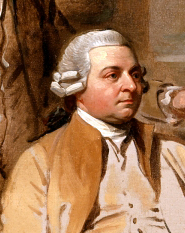
Likewise, today’s society defines diversity in many ways, such as sex, race, ethnicity, and class. Some tend to view the founding era as lacking diversity. But that’s not how John Adams saw it. Adams believed there was much diversity in the founding era. In fact, to him the United States was so diverse that it was a miracle it came together in the first place. Diversity to Adams was found in religion, primarily the different sects or denominations of Christianity as well as Judaism. Defining diversity by religion is a hard concept to grasp in the world today, where all denominations of Protestant and all Catholics are lumped into the category of Christian. But understanding Adams’s view of diversity and the challenges it posed puts independence and the lack of universal voting practices into better context.
“But what do we mean by the American Revolution? Do we mean the American war? The revolution was affected before the war commenced,” Adams asked a newspaper editor in 1818. “The revolution was in the minds and hearts of the people. A change in their religious sentiments of their duties and obligations,” he continued, before concluding, “This radical change in the principles, opinions, sentiments and affection of the people, was the real American Revolution.”[28]
Adams saw a difference between Maryland, which was founded by Catholics, and Pennsylvania, which welcomed all religions, from Jews to Quakers. Religion had influenced the different charters of the colonies. “The colonies had grown up under constitutions of government, so different, there was so great a variety of religions, they were composed of so many different nations, their customs, manners and habits had so little resemblance, and . . . their knowledge of each other so imperfect, that to unite them in the same principles in theory and the same system of action was certainly a very difficult enterprise.”[29]
To Adams, European Americans were very diverse. A French Catholic was different from an Irish Catholic, and an Irish Catholic was different from an Irish Protestant. “By what means, this great and important alteration in the religious, moral, political and social character of the people of thirteen colonies, all distinct, unconnected and independent of each other, was begun, pursued and accomplished, it is surely interesting to humanity to investigate, and perpetuate to posterity.”[30]
Adams wrote these words in February 1818. By this time, more men had gained or were gaining the right to vote without owning land. A few months later, in October, Abigail died at the age of seventy-three. She had continued to remember the ladies throughout her life, showing her resilience and her steadfast faith in women’s capabilities. On one occasion, in 1793, her sister Elizabeth said to her, “I wish you would be so kind as to lend me the Rights of Women—the first opportunity.”[31] The Rights of Women was a book by British author Mary Wollstonecraft, who advocated for women’s education. John had teased Abigail that she was a disciple of Wollstonecraft.
Indeed, education for women paved the path for ladies, motivating them to fight for the right to vote, which culminated in the 19th Amendment to U.S. Constitution that celebrates its centennial in August 2020.
[1]Abigail Adams to Edward Dilly, May 22, 1775, National Archives, founders.archives.gov/documents/Adams/04-01-02-0135.
[2]John Adams to Abigail Adams, May 27, 1776, National Archives, founders.archives.gov/documents/Adams/04-01-02-0270.
[3]John Adams to Abigail Adams, May 22, 1776, National Archives, founders.archives.gov/documents/Adams/04-01-02-0267.
[4]John Adams to Abigail Adams, April 28, 1776, National Archives, founders.archives.gov/documents/Adams/04-01-02-0258.
[5]Abigail Adams to John Adams, March 31, 1776, National Archives, founders.archives.gov/documents/Adams/04-01-02-0241.
[8]John Locke, Two Treatises of Government 1689 (London: George Routledge and Sons, 1887), 96.
[10]John Adams to Abigail Adams, April 14, 1776, National Archives, founders.archives.gov/documents/Adams/04-01-02-0248.
[11]John Adams to James Sullivan, May 26, 1776; see note for Sullivan’s May 17, 1776 letter, National Archives, founders.archives.gov/documents/Adams/06-04-02-0091.
[13]Donald Ratcliffe, “The Right to Vote and the Rise of Democracy, 1787-1828,” Journal of the Early Republic 33, No. 2 (Summer 2013), 219-254.
[14]John Adams to James Sullivan, May 26, 1776; see note for Sullivan’s May 17, 1776 letter, National Archives, founders.archives.gov/documents/Adams/06-04-02-0091.
[15]Locke, Two Treatises of Government, 234.
[16]John Adams to James Sullivan, May 26, 1776; see note for Sullivan’s May 17, 1776 letter, National Archives, founders.archives.gov/documents/Adams/06-04-02-0091.
[18]John Adams to James Sullivan, May 26, 1776, National Archives, founders.archives.gov/documents/Adams/06-04-02-0091.
[20]“Jefferson’s ‘original Rough draught’ of the Declaration of Independence,” Library of Congress, www.loc.gov/exhibits/declara/ruffdrft.html.
[21]John Adams to James Sullivan, May 26, 1776, National Archives, founders.archives.gov/documents/Adams/06-04-02-0091.
[28]John Adams to Hezekiah Niles, February 13, 1818, National Archives, founders.archives.gov/documents/Adams/99-02-02-6854.
[31]Elizabeth Shaw to Abigail Adams, December 29, 1793, National Archives, founders.archives.gov/documents/Adams/04-09-02-0285.






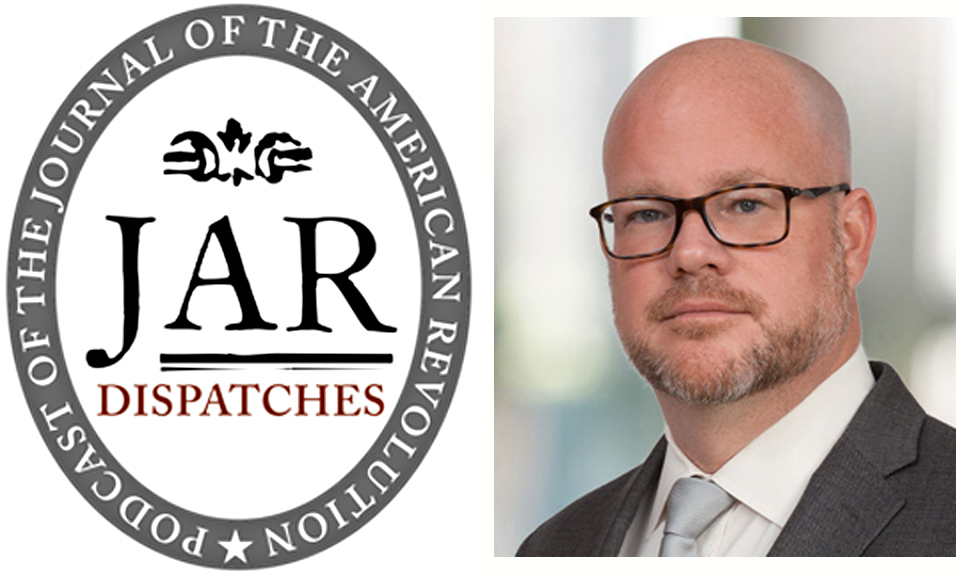
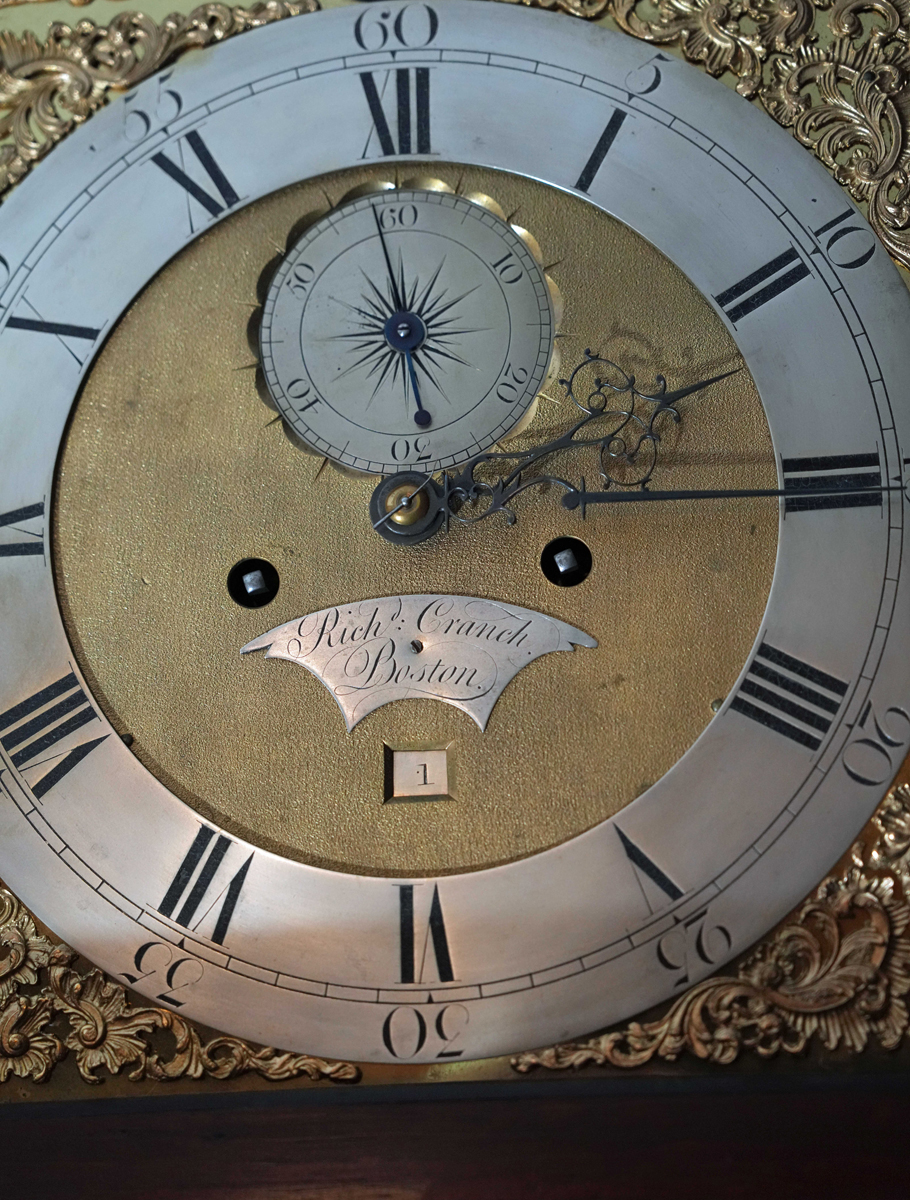

2 Comments
Wow, I had not heard that Democratic-Republican politicians terminated New Jersey’s female suffrage to more easily elect its adherents to office. It’s a bit surprising and I wonder if the state’s women really differentially supported the Federalist. Any excuse probably served the state’s male electorate during this timeframe.
The interchanges between John and Abigail Adams you provided are so much more illuminating than just the oft quoted “remember the ladies’. The context and deeper understanding is outstanding.
I think Edith Gelles’ look at Abigail Adams and especially her famous letter to her husband from a feminist perspective is worth examination as well.